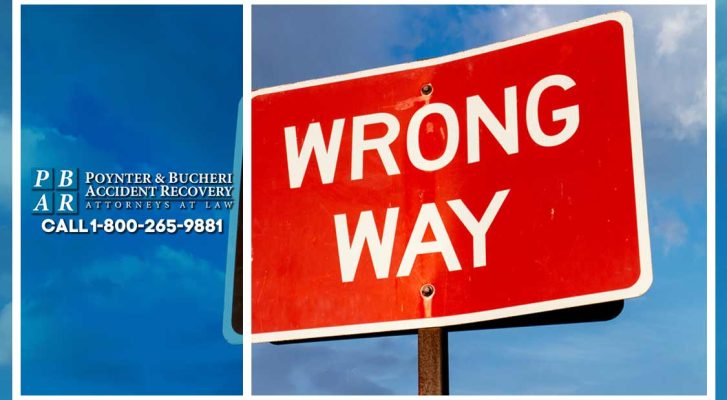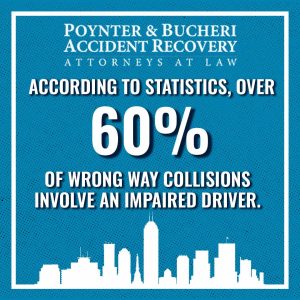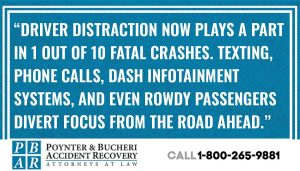
Wrong Way Driver Accident Causes and Liability

A wrong way driver accident is one of the most dangerous traffic situations imaginable. When a driver enters a road or highway going the wrong direction, usually in the oncoming lanes, the chance of a head-on collision rises exponentially. These types of crashes often lead to serious injuries and fatalities, like a recent incident in Daleville, Indiana.
A Tragic Wrong Way Driver Accident in Indiana
Around 2:21 am on a Sunday, police responded to reports of a wrong way driver traveling northbound in the southbound lanes of I-69 near the 234 mile marker. The at-fault vehicle, a Kia Forte, collided head-on at highway speeds with a Chevrolet Malibu.
The violent impact killed both Malibu victims instantly. Meanwhile, the Kia’s engine detached completely and came to rest in the middle of I-69 lanes. Before the vehicle could slow, a Volkswagen slammed into the stationary engine. The Kia then caromed into a passing semi-truck before stopping. The VW and semi drivers avoided injury, but the driver of the Kia sustained severe trauma and had to be airlifted to an Indianapolis hospital.
Alcohol impairment is suspected to have played a pivotal role. Now, let’s examine common causes behind wrong way crashes and liability questions that can shed light on this deadly problem.
Common Causes of Wrong Way Driving Accidents
According to statistics, over 60% of wrong way collisions involve an impaired driver. Intoxication from alcohol above the legal limit or drugs like marijuana slow reaction times, hamper judgment, and inhibit a motorist’s ability to interpret signs, lane markings, and traffic flow. Drunk drivers often enter highways via exit ramps or simply make wrong turns onto one-way streets.
- Driver distraction now plays a part in 1 out of 10 fatal crashes. Texting, phone calls, dash infotainment systems, and even rowdy passengers divert focus from the road ahead. Drivers under stress may mistakenly take the wrong route if their focus momentarily wavers, especially near intersections or ramps.
- Advanced age brings vision problems that make signs harder to spot in addition to cognitive decline. Dementia, Alzheimer’s disease, and prescription drug interactions interfere with the reasoning skills necessary to drive safely. Elderly but otherwise competent motorists might become confused when navigating complicated interchanges.

- Drowsy drivers cause just as much impairment as alcohol consumption. Drifting off for even a moment can lead to a wrong turn or wandering across median lines. Night shift workers finishing long commutes and truckers pushing distance limits without rest breaks are especially susceptible.
- Medical emergencies like diabetic shock or seizures give no chance to pull over safely before loss of vehicle control. Afterward, the now unconscious motorist continues traveling wherever momentum carries them until a crash stops the car.
- While rare in comparison, overgrowth of roadside vegetation can completely obscure wrong way warning signs. Even clearly posted but complex exit ramps might enable a momentarily confused driver to go in the improper direction.
Liability Questions After a Wrong Way Driver Accident
Following devastating collisions like the recent Indiana event, families want to understand liability when wrong way driving causes injury or death. The at-fault party (or their insurer) typically provides compensation, but factors like impairment and poor sign maintenance could point the blame elsewhere.
If drunk, distracted, or drowsy driving resulted in the wrong way crash, the negligent motorist assumes full responsibility. Violating traffic laws by driving carelessly automatically establishes legal culpability. Depending on circumstances, criminal charges may apply, too.
However, liability shifts away from drivers if other dangerous road defects enabled the accident. Should overgrown landscaping block a Do Not Enter sign or confusing lane markings misdirect traffic, liability could fall partially or entirely upon the state Department of Transportation. If lighting conditions or sight line issues due to poor design helped cause the crash, the state shares some portion of responsibility.

Vehicle owners who allow intoxicated motorists to drive their autos can also share the blame. Under negligent entrustment laws, knowingly providing keys to someone likely to drive recklessly makes both parties liable for any resulting harm.
As in any motor vehicle crash, multiple factors often combine to produce the collision. Determining the degree of fault for each plays a crucial role in injury compensation after an accident. An experienced wrong way crash attorney thoroughly investigates why and how the motorist went in the incorrect direction on a road. Making sense of contributing problems like alcohol, distraction, traffic infrastructure, and vehicle maintenance establishes a fair outcome when filing insurance claims or lawsuits.
Poynter & Bucheri- Indianapolis Car Accident Lawyers
No explanation or financial award can undo the tragic loss from wrong way accidents. But understanding precisely how and why they happen could help Indiana prevent similar heartbreak. Perhaps new highway signs, stronger drunk driving sentences, or better traffic engineering might save lives down the road. For now, keeping drowsy or impaired motorists from getting behind the wheel remains the most effective way drivers can avoid contributing to wrong way collisions.
At Poynter and Bucheri Accident Recovery, we know how devastating a wrong way driver accident can be and are dedicated to helping our clients seek justice and get the compensation they need and deserve. We will help you file your claim, gather evidence, and ensure the insurance company awards you the full amount you are owed.
Don’t hesitate — an experienced Indiana car accident lawyer can assist you right away. Call 1-800-265-9881 for a free case review.
